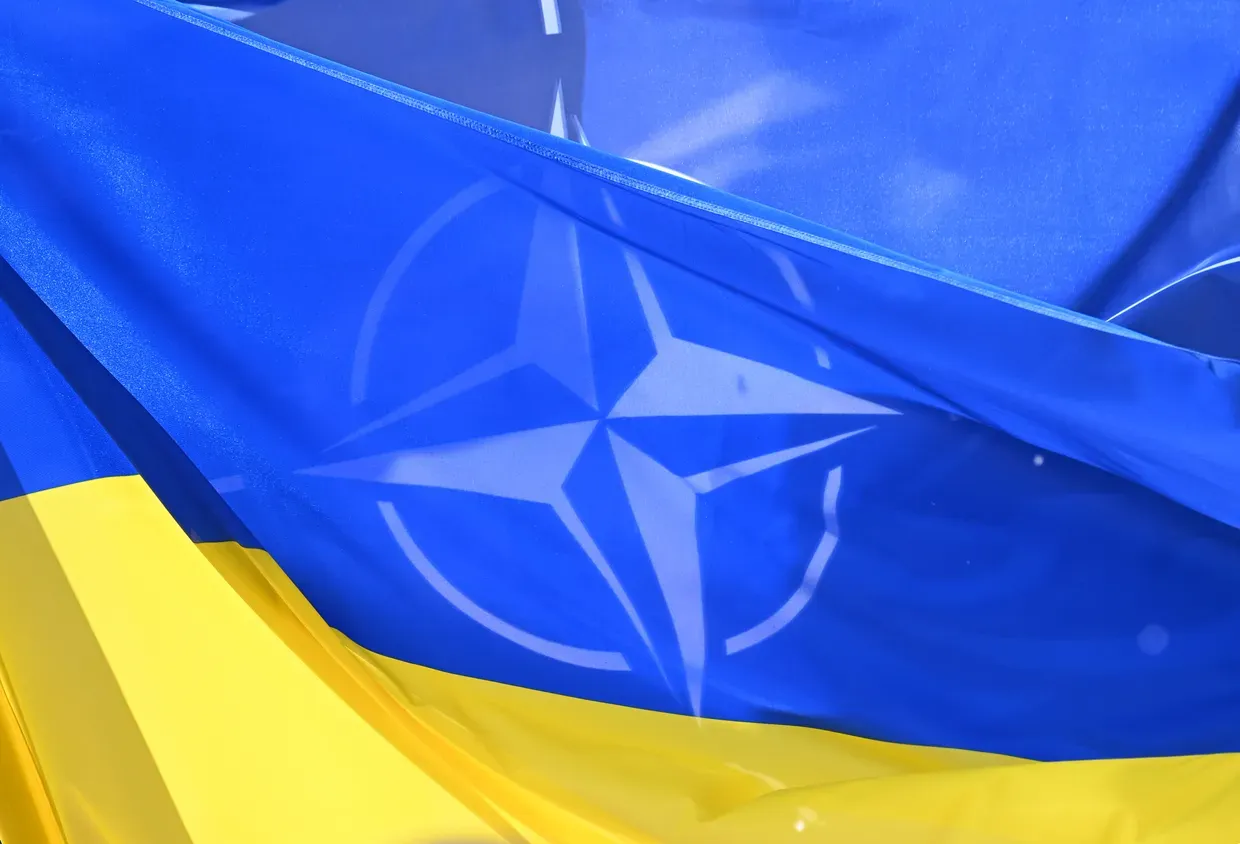Nato set to sidestep Ukraine’s call for quick invite

Members remain divided on when the eastern neighbour should join the military alliance, if at all
Nato is highly unlikely to heed Ukraine’s call for a membership invitation at a meeting on Tuesday, according to diplomats, dashing Kyiv’s hopes of a political boost as it struggles on the battlefield and awaits Donald Trump’s return to the White House.
In a letter to his Nato counterparts before of the meeting, Ukraine foreign minister Andrii Sybiha said an invitation would remove one of Russia’s main arguments for waging its war: preventing Ukraine from joining the alliance.
But there is no sign of the required consensus among Nato’s 32 members for such a decision at the foreign ministers’ meeting in Brussels, the diplomats said, speaking on condition of anonymity.
Nato secretary-general Mark Rutte said on Tuesday the alliance was working on “building the bridge” to membership for Ukraine. But he said the most urgent issue was providing Kyiv with more arms to repel Russian forces.
“The meeting in the next two days will very much concentrate on how to make sure that Ukraine, whenever it decides to enter into peace talks, will do so from positional strength,” he said. “And to get there, it is crucial that more military aid will be pumped into Ukraine.”
Rutte said he welcomed recent announcements of more military aid for Ukraine from US, Germany, Sweden, Estonia, Lithuania and Norway. The US on Monday announced a new weapons package for Ukraine worth $725m.
Ukraine’s foreign ministry said on Tuesday it would not settle for anything less than Nato membership, citing its experience with a pact 30 years ago under which it relinquished nuclear arms in exchange for security assurances from major powers that never materialised.
“With the bitter experience of the Budapest Memorandum behind us, we will not accept any alternatives, surrogates or substitutes for Ukraine’s full membership in Nato,” the ministry said in a statement.
Mutual defence
Ukraine sees Nato membership as the best guarantee of its security. Under Nato’s Article 5 mutual defence pact, members agree to treat an attack on one as an attack on all and come to each other’s aid.
Ukrainian President Volodymyr Zelensky suggested in a Sky News interview last week that putting territory currently controlled by his government “under the Nato umbrella” would stop the “hot phase” of the war.
His comments came as Ukraine faces a tough winter on the battlefield. Russian troops are advancing in the east and air strikes are targeting the country’s hobbled energy grid.
While Nato has declared Ukraine will join its ranks and that the country’s path to membership is “irreversible”, it hasn’t issued an invitation or set out a timeline.
Any such decision would depend above all on Nato’s predominant power, the US, which will be a matter for Trump, when he returns as president next month.
Trump has criticised the scale of US aid for Kyiv and said he will end the war in a day. But he hasn’t set out a detailed plan of how he will tackle the conflict.
Some Nato members, such as Hungary, have voiced opposition to Ukraine joining the alliance. Others, including the current US and German governments, have signalled they do not think the time is right, diplomats say.